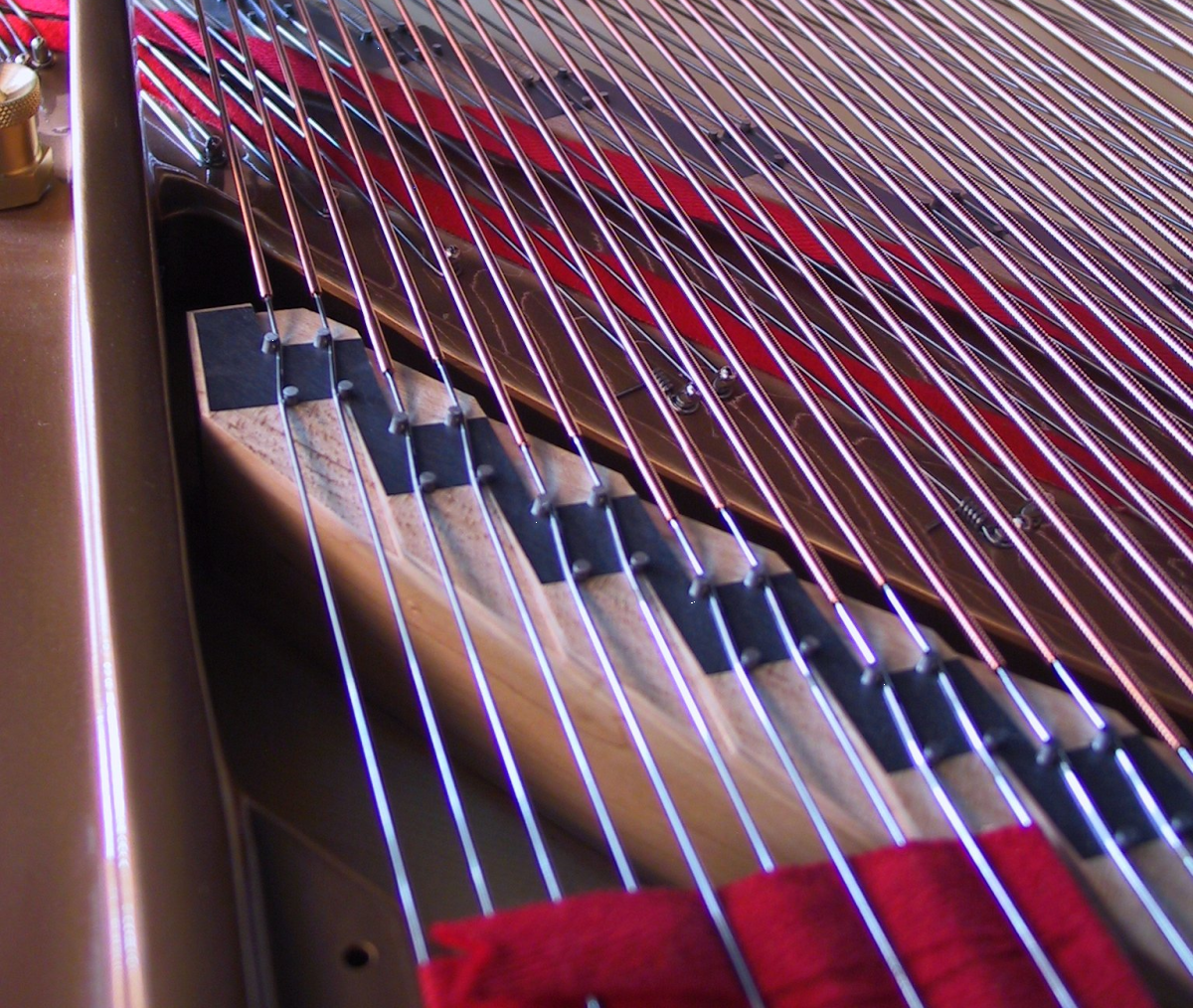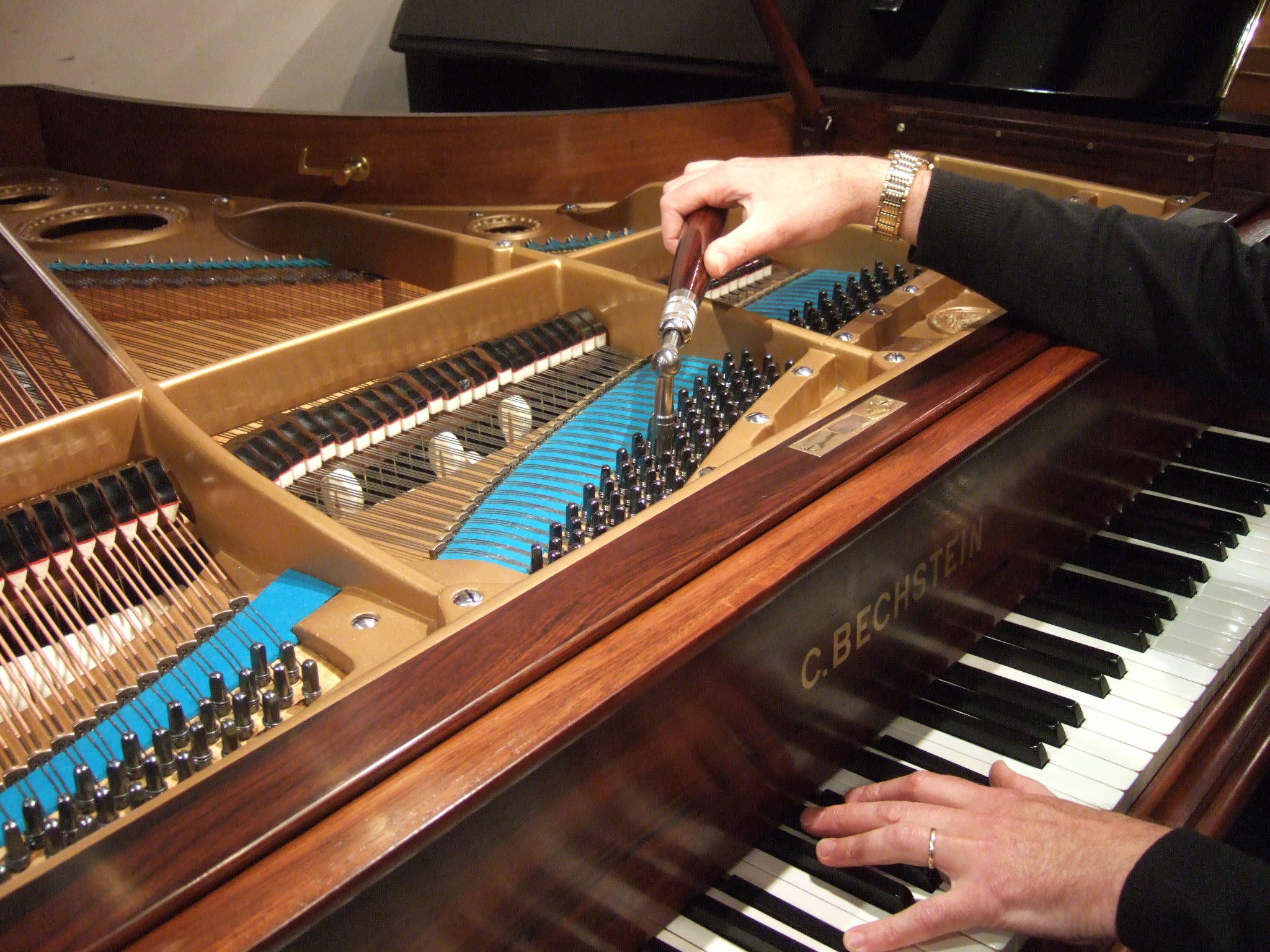
Many factors cause pianos to go out of tune, particularly atmospheric changes. Constructive and destructive interference results in a beating pattern in the resulting wave. The two waves are initially identical, then the frequency of the green wave is gradually increased by 25%. The sum (blue) of two waves (red, green) is shown as one of the waves increases in frequency. Many piano manufacturers recommend that pianos be tuned twice a year.īackground A piano tuner's most basic tools include the tuning lever (or "hammer") and mutes An illustration of beating.
BECOMING A PIANO TUNER PROFESSIONAL
Professional training and certification is available from organizations or guilds, such as the Piano Technicians Guild. Piano tuning is done by a wide range of independent piano technicians, piano rebuilders, piano-store technical personnel, and hobbyists.
BECOMING A PIANO TUNER SOFTWARE
In practice, a MIDI software can label middle C as C 3-C 5, which can cause confusion, especially for beginners. For a classical piano and musical theory, the middle C is usually labelled as C 4 (as in scientific pitch notation) However, in the MIDI standard definition this middle C (261.626 Hz) is labelled C 3. In all systems of tuning, every pitch may be derived from its relationship to a chosen fixed pitch, which is usually A440 (440 Hz), the note A above middle C. (See Piano key frequencies for the theoretical piano tuning.) Pianos are usually tuned to a modified version of the system called equal temperament. Fine piano tuning requires an assessment of the vibration interaction among notes, which is different for every piano, thus in practice requiring slightly different pitches from any theoretical standard. The meaning of the term 'in tune', in the context of piano tuning, is not simply a particular fixed set of pitches. Piano tuning is the act of adjusting the tension of the strings of an acoustic piano so that the musical intervals between strings are in tune. Hope that advice helps."Piano tuner" redirects here. I must have spent at least £2000 on tools, parts and reading materials in my first three years on the job. You’ll need some money coming in to buy the tools needed for the job. If you live in a big city like Leeds it might be easier to find part-time employment. Working in music shops buying, restoring and selling second hand pianos, or teaching an instrument are possible part-time jobs that could sustain you through the hard times. You’ll have to accept that for the first one to three years working in the trade you won’t be earning very much money, as it takes a long time to build up a client base.

If you play the piano you might progress quickly than those who don’t, but contrary to popular belief most people can become very good at piano tuning with a lot of practice – 10,000 hours is the oft touted figure. A basic knowledge of music theory will certainly help in the early stages of learning, as will a musical ear and a love of music.
BECOMING A PIANO TUNER HOW TO
That is three years but it will give you a thorough grounding in the field and teach you most of what you need to know how the construction of the piano and how to regulate the action. The only one I’m aware of that’s still running in the UK is the piano tuning and restoration course at Newark college. To become a piano tuner you’ll have to study a course in the subject. I’ve not found much piano tuning work in Manchester or Bradford yet – perhaps I need to promote myself more in those cities.

You need to be willing to travel and prepare to work long hours if you are to earn a living. I’ve also heard that London is good place to work, if you can afford the living costs. Large, densely-populated cities are gold mines for the piano tuner – Leeds seems to be a very good location.

In that year in the USA the average salary of a piano tuner was $43,600 a year… It should be noted that with the growing popularity of digital pianos, the trade isn’t quite what it was in 1988! And there’s certainly some stress that comes with piano tuning but that’s part of any job. Have you ever thought about a career in piano tuning? The 1988 Jobs rated almanac rated Piano Tuning as the second highest in a list of high-paying/low-stress jobs, ranking it above petroleum engineer and historian and just below actuary.


 0 kommentar(er)
0 kommentar(er)
